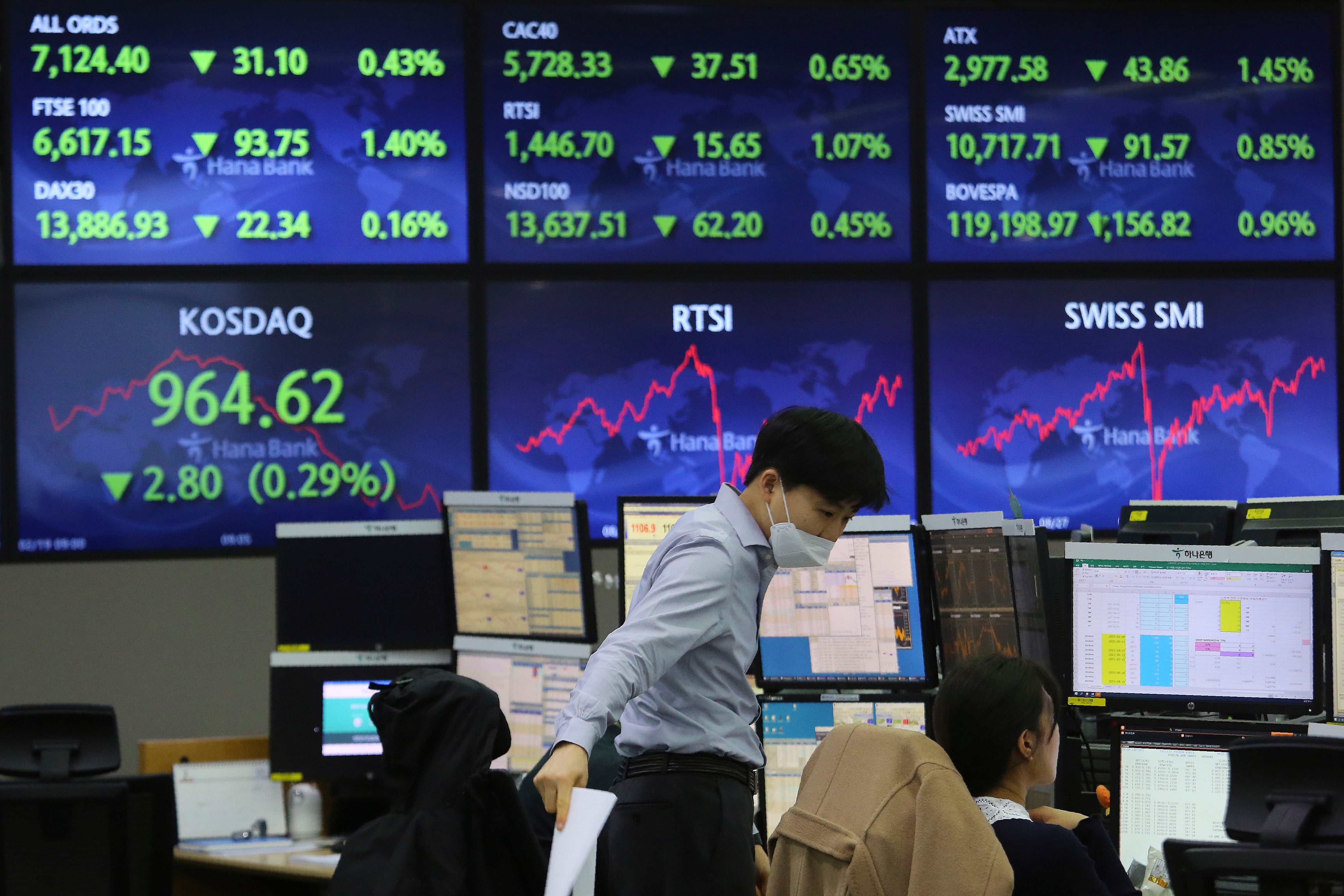Asia stocks follow Wall St. down after weaker US jobs data
Asian stock markets have followed Wall Street lower after disappointing U.S. jobs and economic data

Your support helps us to tell the story
From reproductive rights to climate change to Big Tech, The Independent is on the ground when the story is developing. Whether it's investigating the financials of Elon Musk's pro-Trump PAC or producing our latest documentary, 'The A Word', which shines a light on the American women fighting for reproductive rights, we know how important it is to parse out the facts from the messaging.
At such a critical moment in US history, we need reporters on the ground. Your donation allows us to keep sending journalists to speak to both sides of the story.
The Independent is trusted by Americans across the entire political spectrum. And unlike many other quality news outlets, we choose not to lock Americans out of our reporting and analysis with paywalls. We believe quality journalism should be available to everyone, paid for by those who can afford it.
Your support makes all the difference.Asian stock markets followed Wall Street lower on Friday after disappointing U.S. jobs and economic data.
Shanghai, Tokyo, Hong Kong and Australia all declined.
Overnight, Wall Street's benchmark S&P 500 index lost 0.4% for its third straight daily decline.
Stocks retreated after the U.S. government reported 861,000 people applied for unemployment benefits last week. Minutes of the Federal Reserve's latest meeting showed central bank officials believe the coronavirus pandemic still poses considerable risks to the economy.
In Washington, Treasury Secretary Janet Yellen urged Congress to avoid cutting President Joe Biden's proposed $1.9 trillion aid package. She said the economy is in “a deep hole” despite signs of improvement.
“The market is likely still on a reflation path, but the way will get choppier from here,” said Stephen Innes of Axi in a report. He said improvement requires “continued economic growth recovery” because government and central bank support already are reflected in asset prices.
The Shanghai Composite Index lost 0.3% to 3,663.74 and the Nikkei 225 in Tokyo sank 0.9% to 29,974.07. The Hang Seng in Hong Kong shed 0.9% to 30,335.51.
The Kospi in South Korea was little-changed at 3,087.70 and Sydney's S&P-ASX 200 tumbled 1.2% to 6,801.50.
India's Sensex opened up 0.1% at 51,387.35. New Zealand and Southeast Asian markets also retreated.
On Wall Street, the S&P 500 fell to 3,913.97. The Dow Jones Industrial Average lost 0.4% to 31,493.34. The Nasdaq Composite tumbled 0.7%.
Also Friday, a preliminary version of Japan's monthly purchasing managers' index for manufacturing rose to its highest level in just over two years. That suggested manufacturers are coping with the country's latest state of emergency better than many people expected.
Stock prices rose over the past six months on optimism about the development of coronavirus vaccines. But sentiment has been dented by conflicting data after renewed infection spikes in the United States and Europe prompted governments to reimpose travel and business curbs.
Shares of GameStop fell 11.4% on Thursday. Congress is conducting a hearing on the recent volatility of companies caught in a tug-of-war between Wall Street institutional investors betting against the companies and the online retail investors who pushed shares higher.
In energy markets, benchmark U.S. crude fell $1.01 per barrel to $59.52 in electronic trading on the New York Mercantile Exchange. The contract lost 62 cents on Thursday to close at $60.52. Brent crude, used to price international oils, retreated 90 cents to $63.03 per barrel in London. It shed 41 cents the previous session to $63.93.
The dollar declined to 105.58 yen from Thursday's 105.70. The euro gained to $1.2093 from $1.2086.